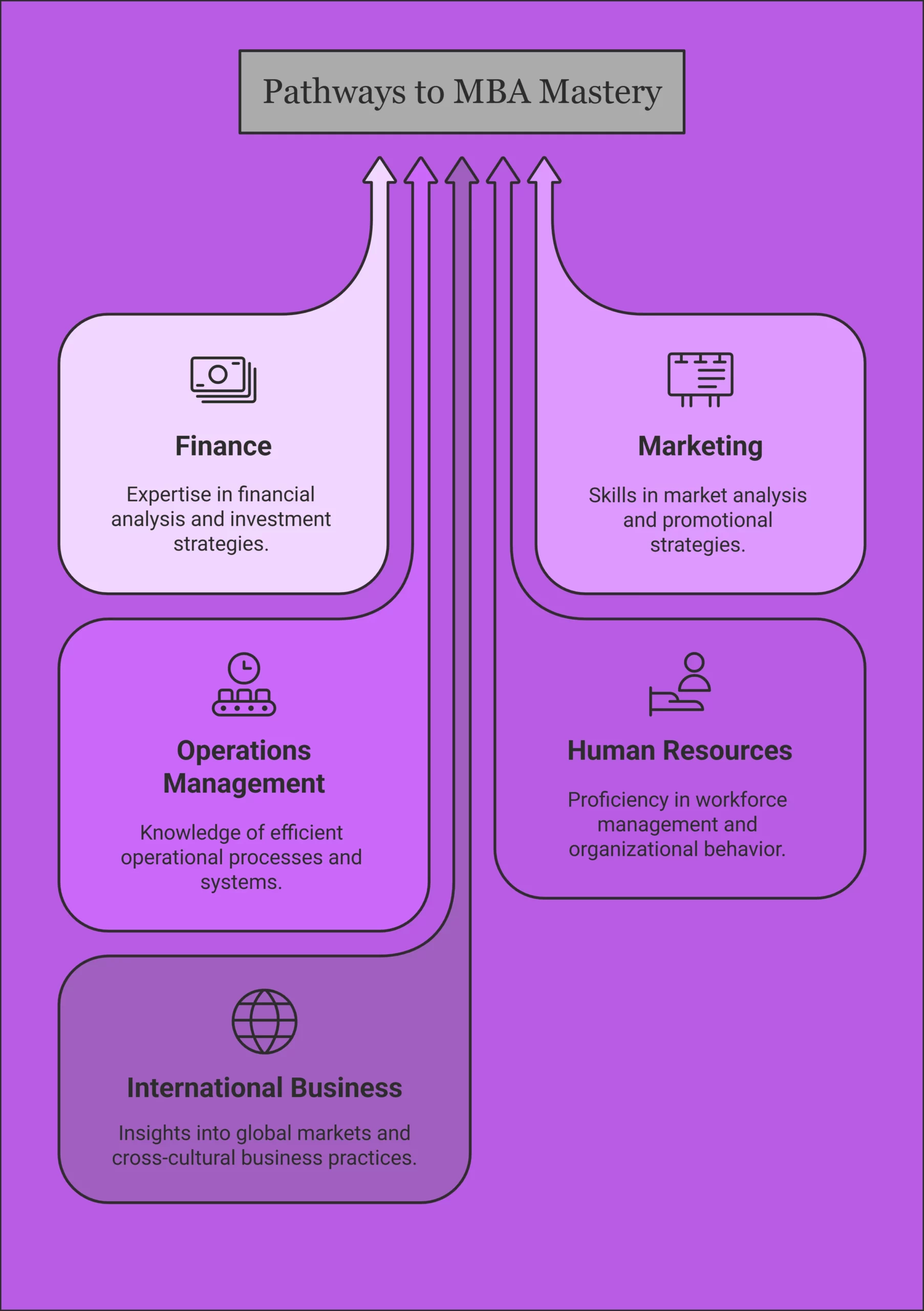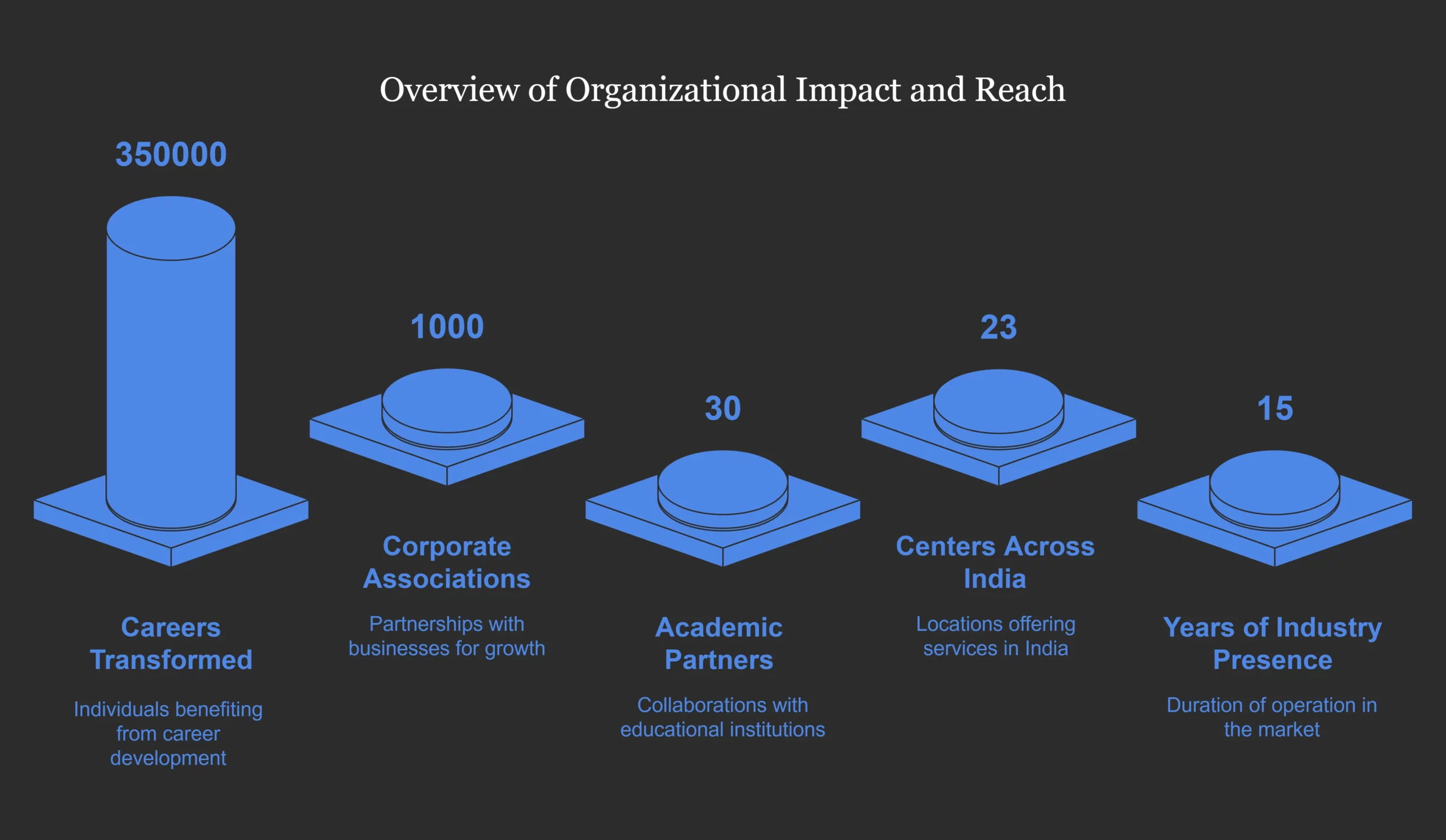How To Get a Master's Degree 8 Tips For Success
Table of Contents

Enrolling in a master’s degree program is often a significant step toward transforming both your academic and professional life. Whether you aspire to climb the corporate ladder, deepen your expertise in a specific field, or explore an entirely new career path, a Master’s degree opens doors to countless opportunities.
In India, the demand for specialized skills has surged, with over 25,000 students enrolling in various master’s programs each year, according to recent figures from the education ministry. This highlights the growing recognition that a Master’s degree is no longer a luxury but a necessity for career advancement and specialization across industries such as business, technology, healthcare, and the arts.
Symbiosis University stands among India’s top-ranked higher education institutions, renowned for its diverse range of globally recognized programs. The university offers master’s degrees in fields such as MBA, M.Tech, M.A, and M.Sc, providing students with the opportunity to build expertise, expand their career prospects, and make a meaningful impact in their chosen domains.
In this blog, we’ll explore some of the best master’s degrees offered at Symbiosis University and the unique benefits they provide.
Let’s dive in!

*educations.com
How Long Does It Take to Complete a Master’s Degree?
The length of a master’s program is determined by multiple factors, including its program, mode of study, and country or institution.
A 1-year master’s degree is an accelerated option offered by some colleges. And such programs have been made for a very busy and intensive learning experience. These courses are typically shorter, more intensive, and focused; candidates who wish to complete their qualification within short periods of time may consider them.
Master’s degree of 2 years:
Most courses for a master’s degree are typically two years long. This is particularly true for courses like MBA, M.A., or M.Sc. They usually comprise relatively elaborate coursework, practical training, internships, and, in a few cases, a thesis.
Master's Degree Courses: Which One Is For You?
When faced with so many possibilities, one almost becomes paralyzed in deciding which master’s degree course to pursue. Below is a curated list of master’s degree courses spanning several fields that you are free to study according to your interests and career objectives:
1. MBA
An MBA is one of the most sought-after master’s degree courses across the world. Focused on business management, leadership, and strategic decision-making, the MBA enables students to specialize in:
- Finance
- Marketing
- Operations Management
- Human Resources
- International Business

Numerous universities, including Symbiosis University, offer the MBA because it prepares students for upper leadership roles in all industries. The stream may be pursued by aspirants looking to develop a career in corporate management or entrepreneurship.
2. M. Tech
If one comes from an engineering or technology background, then an M.Tech degree, which allows specialization in Artificial Intelligence, Data Science, Cybersecurity, Robotics, and Software Engineering, is a good choice. The program includes advanced technical training that is currently in high demand in the job market.
3. Master of Science (M.Sc.)
-
- Computer Science
- Biotechnology
- Physics
- Chemistry
- Environmental Science
4. Master of Arts (M.A.)
-
- Psychology
- Political Science
- Sociology
- History
- English Literature
5. Master of Fine Arts (MFA)
-
- Painting
- Photography
- Performing Arts
- Film-making
- Music
6. Master of Public Administration (MPA)
This postgraduate program is designed for students interested in working in government, public policy, or non-profit organizations. The program tends to cover public sector management, policy analysis, and ethics of public service.
7. Master of Law (LL.M.)
-
- International Law
- Corporate Law
- Criminal Law
- Intellectual Property Law
- Online MBA
- Online M.Sc. in Economics
- Online M.Sc. in Computer Application
- Online M.Sc. in Data Science
- Online M.Sc. in Arts
Symbiosis University List of Master Degree Courses
| Course Name | Duration | Total Fee |
|---|---|---|
| Online MBA Programme | 24 months | Total Fee Inclusive of all taxes INR 1,75,000/- Each Semester *Inclusive of all taxes INR 43,750/- |
| Online Master of Science (Economics) | 24 months | Application Fee INR 750/- Total Fee INR 1,40,000/- |
| Online M.Sc. (Computer Applications) | 24 months | Application Fee INR 750/- Total Fee INR 1,40,000/- |
| Online Master of Science (Data Science) | 24 months | Application Fee INR 750/- Total Fee INR 1,40,000/- |
| Online Master of Arts (Mass Communication) | 24 months | Application Fee INR 750/- Total Fee INR 1,00,000/- |
Why Choose Symbiosis University for a Master's Degree?
Symbiosis University is among the best educational institutions in India and offers a wide array of master’s degree courses designed for the ever-evolving requirements of modern students. Here are the reasons why Symbiosis is your best shot at postgraduate education:
- World-Class Professors
Symbiosis University boasts a diverse set of experienced faculty who have undergone specialization in multiple disciplines and have experience ranging from academia to industry. They believe in innovative teaching techniques such that students will learn from the real world instead.
- Diversity of Master’s Programs
Symbiosis boasts various master’s courses for various disciplines. Be it full-time MBA, online MBA, M.Tech, or M.Sc., for that matter, Symbiosis offers every option as per your objective.
- Industry Wetting and Placements
There is a very strong synergy between Symbiosis and the leading companies in various industries. Their painstakingly pieced-together placement cell ensures students access to the best employers and careers once they have graduated.
- Online and Distance Learning
Symbiosis now offers to all those busy individuals a range of remarkably good-quality accredited courses in master’s study that would be at par with its onsite counterparts. Among the online MBA and M.Tech courses, there is the same kind of flexibility but uncompromising academic quality.
- Global Exposure
Symbiosis has established extensive and comprehensive global ties with universities and organizations worldwide.
Success Tips For Students
Eight Proven Strategies to Successfully Earn Your Master’s Degree
Pursuing a master’s degree comes with its challenges, but the right approach can help you overcome obstacles and stay on track. Here are eight practical strategies to boost your chances of success:
1. Develop a Support Network—and Take Advantage of It
In a master’s program, you’ll be surrounded by highly intelligent and accomplished individuals. Rather than viewing them as competition, consider them an essential part of your network.
Many of your peers will likely be working professionals—often in their mid-30s—with substantial career experience. This makes them a valuable source of insights, advice, and professional connections. In your next course, you might even find yourself collaborating with a C-suite-level executive or senior executive.
These connections can significantly enhance your learning experience. Some courses require group projects or collaborative exercises, which, while initially intimidating, offer excellent opportunities to step out of your comfort zone and build lasting relationships. As you encounter familiar faces across multiple classes, you’ll discover ways to support and learn from each other.
2. Use the Free Resources Available to You
Many universities and colleges offer tutoring services as part of their student support system, often at no additional cost. While undergraduates may be expected to navigate challenges independently, graduate students sometimes hesitate to seek help, fearing it signals weakness. However, leveraging available resources, such as tutoring services, can significantly enhance your learning experience. If you need assistance with your coursework, don’t hesitate to ask a tutor. Your school can connect you with educational experts who are ready to help.
3. Set Stage-by-Stage Deadlines Rather Than Due Dates
Without structured goal-setting, each passing day can push you further from your objectives. Instead of focusing solely on the final due date, break your work into smaller, manageable tasks over a three-week period. This approach ensures that you allocate time for studying, refining your work, and reviewing progress before submission.
Establishing an effective project management system is crucial for balancing long-term goals with daily responsibilities in graduate school. Digital tools can help streamline this process. Consider using Google Calendar and a to-do list app to keep your tasks organized and track your progress efficiently.
4. Find Work Times That Work
Balancing your home, work, social life, and academic commitments can feel overwhelming.
Unlike an undergraduate program, pursuing a master’s degree often requires working on weekends. You may need to adjust your personal schedule to dedicate uninterrupted time on Saturdays and Sundays for coursework, readings, and writing.
TIP: When planning your study schedule, keep in mind that different programs—and even different professors—have unique expectations. For example, at Franklin University, which caters to working professionals, assignments are typically due on Sunday nights. This allows students with Monday-to-Friday jobs to use the weekend for coursework. Try blocking out a few hours on your calendar every weekend or evening to stay on top of your studies.
In most cases, you may need to sacrifice some leisure activities, such as watching movies, playing sports, or socializing with friends, until you complete your degree.
5. Set Up an Information Management System for Your Notes and Ideas
Undergraduate studies often focus on memorization and comprehension, but graduate work emphasizes application.
To stay organized, consider using tools like Evernote or structured folders in Google Drive to store notes and ideas efficiently. In a master’s program, students are expected to not only understand the material but also analyze, synthesize, and apply their knowledge. Managing your notes effectively will help streamline this process and save time.
6. The Freelance Editor
By now, it should be clear that writing at the graduate level is significantly different from undergraduate coursework. If you don’t excel at writing, you might want to consider hiring an editor to polish your work. Freelance editors can be found on platforms like Upwork or Fiverr.
You might be surprised at how affordable these services can be—rates typically start at $5–$10 per hour. Investing in a competent editor can enhance the clarity, structure, and professionalism of your academic writing.
7. Meet Your Professors
The professors and other faculty members are there for your assistance. Remember, graduate schools want you to succeed, so you should view it as a mutually beneficial partnership. Professors need to know when you require more guidance, and they will ensure you get back on task.
8. Keep the End in Mind
Things will become tough. Prepare to battle emotions of anger and frustration. It helps to remind yourself why you’re pursuing your degree. During periods of positivity, pull out that smartphone and set up a whole bunch of encouraging text reminders to pop up in the future when you know work will be overwhelming.
Achieve Mastery With Jaro Education
For over 15 years, Jaro Education has transformed more than 350,000 professionals with its extremely vast domain expertise and excellent insight into executive education in more than 23 learning centers across India, Singapore, and the USA. They focus on executive education for building entrepreneurs and working professionals from entry-level to C-suite in any field or industry.
Furthermore, after becoming the most recognized company for bringing a change in the online education system in India, Jaro Education is credited with over 150 programs for management, technology, and techno-functional courses in association with well-reputed institutes.

Frequently Asked Questions
The most common types of Master’s degrees include:
-
- Master of Arts (MA)
- Master of Science (MS)
- Master of Business Administration (MBA)
- Master of Fine Arts (MFA)
- Master of Education (M.Ed.)
- Master of Engineering (MEng)
Ideally, a master’s degree takes 1 to 2 years to complete, depending on the program and whether you are studying full-time or part-time.
To pursue a master’s degree, you generally need to have a completed bachelor’s degree in a relevant field, although specific requirements may vary by program.
A master’s degree can enhance career opportunities, increase earning potential, and provide expertise in a specialized field. However, its value depends on your career goals and the specific field you are interested in.
Yes, many universities offer part-time or online master’s degree programs designed for working professionals. This allows you to balance your education and career.
A master’s degree is generally focused on advanced knowledge and skills in a specific field, while a doctoral degree (PhD) involves original research and contributes new knowledge to the field.
A master’s degree can lead to higher-level job positions, specialized roles, teaching opportunities, and the potential to transition into different industries or professions.
















